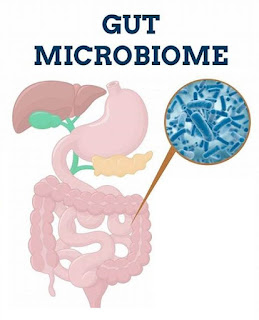Unveiling the Secrets: Unique and Proven Tips for Weight
Management in Women
In an era
overflowing with quick-fix diets, Instagram-famous workout routines, and
endless supplements promising miraculous results, it can be both exhilarating
and daunting to navigate the landscape of weight management as a woman. Society
often lays a heavy expectation on female bodies, and while we celebrate
diversity and body positivity today, the importance of good health remains a
priority. Fortunately, weight management doesn’t have to be an arduous journey;
it can be a fascinating adventure filled with unique strategies that fit
seamlessly into your lifestyle. Let's explore some of the world’s best-proven,
practical, and often less-known tips that can empower women on their weight
management journey!
1. Embrace the Power of Mindful Eating
Mindful eating is more than just a trendy phrase; it's a transformative practice that encourages a deeper connection to the food you consume. It involves paying full attention to the experience of eating, acknowledging your hunger cues, savoring each bite, and recognizing your body's signals of fullness. Research indicates that being present during meals can drastically reduce overeating. Here’s a unique tip: try eating with chopsticks! The deliberate pace at which you have to eat forces you to slow down and engage more thoughtfully with your food.
2. Don’t Just Count Calories—Count Colors!
While calorie counting has often been the go-to method for weight management, it can lead to an unhealthy obsession for many. Instead, focus on the diversity of colors in your meals. Foods that are vibrant are often packed with essential nutrients and antioxidants. Aim for a "rainbow plate" filled with greens, reds, oranges, purples, and whites. Secret tip: try starting your meal with a colorful salad or a vegetable platter as an appetizer. This not only fills you up with fiber but also adds a burst of nutrients without the heaviness of calorically dense options.
3. Engage in Laughter Yoga
Laughter isn’t just good for the soul; it also promotes weight loss! Laughter yoga combines laughter exercises with yoga breathing, creating an atmosphere of joy that promotes mental wellness and physical fitness. Studies have shown that laughing can burn calories – estimated at about 10-40 calories for 10-15 minutes of hearty laughter. Unique idea: Why not gather your friends for a laughter yoga session twice a week? It provides a social outlet and becomes a fun way to incorporate physical activity into your routine.
4. Invest in a Quality Water Bottle
Staying hydrated is paramount for effective weight management, and a quality water bottle can be a game changer. Carrying a stylish, reusable water bottle ensures that you have easy access to water throughout the day. Aim to consume at least half your body weight in ounces of water daily. Pro Tip: Choose a bottle with time markers that encourage you to drink at regular intervals. Not only does hydration help control appetite, but it also elevates energy levels and supports overall health.
5. The Power of Plant-Based Eating
While not everyone needs to become fully vegan or vegetarian, incorporating more plant-based meals into your diet can significantly aid weight management. Plants are rich in fiber and nutrients while being lower in calories than animal products. Experimenting with different global cuisines that emphasize plant-based cooking can keep your meals exciting. Bonus Tip: Swap traditional pasta with zucchini noodles or try cauliflower rice to dramatically lower calorie intake without sacrificing flavor!
The importance of sleep in weight management cannot be overstated yet is often overlooked. Quality sleep regulates hormones that control your appetite, such as ghrelin and leptin. Aiming for 7-9 hours of sleep each night can reduce cravings and improve metabolic function. Less-known secret: Create a sleep sanctuary by reducing light exposure, establishing a nightly routine, and even incorporating aromatherapy with essential oils like lavender to enhance relaxation.
7. Move Mindfully with Nature
Physical activity doesn’t have to be confined to a gym. Engaging with nature can invigorate your workout routine. Research reveals that time spent outdoors can elevate mood, reduce stress, and encourage consistency in fitness practices, all crucial factors for maintaining a healthy weight. Unique adventure tip: consider scheduling ‘nature workout’ days—hiking trails, practicing yoga in the park, or joining outdoor boot camps. The change of scenery can make exercise refreshing and enjoyable.
8. Harness the Power of Community
Fostering a supportive network can be a critical element of successful weight management. Whether it’s joining a local fitness group, participating in online forums, or simply establishing a workout buddy system, being surrounded by others with similar goals enhances motivation and accountability. Helpful Insight: Be an active participant in community activities focused on health, like charity runs or group fitness classes, to meet new people while working toward your goals.
Weight management is an individual journey, uniquely shaped by personal choices, preferences, and lifestyles. By incorporating these world-class, practical, and often unique strategies into your routine, success becomes not just a destination but a delightful journey. Embrace the spirit of experimentation—trying different methods can lead to discovering what truly resonates with you. Above all, remember to celebrate your progress, nurture your mind and body, and prioritize joy alongside your health. The journey of weight management can be a vibrant, empowering experience, especially when approached with enthusiasm and an open heart!


.jfif)
.jfif)

